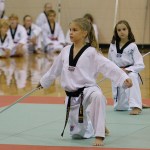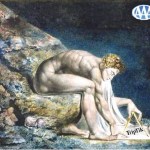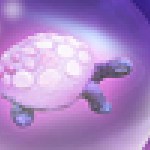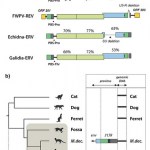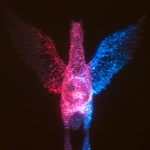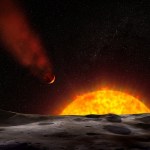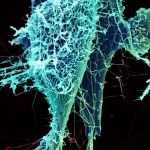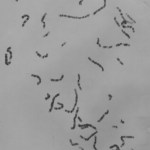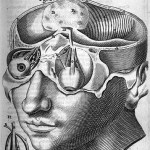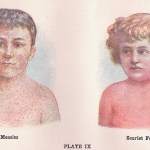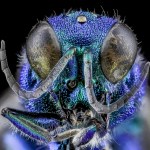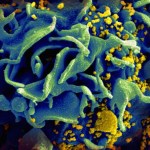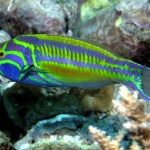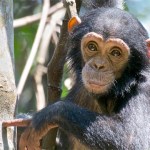Misc
On Aardvarchaeology, Martin Rundkvist tells the story of a 14-year old Swedish Muslim girl who also happens to be very good at karate. Recently this young woman was disqualified from a tournament because she wears a veil and the rules state "that the umpire needs to be able to watch for damage to each contestant’s throat." She was also disqualified from solo performance, despite that lack of potential for neck damage. Martin writes, "Things are changing in the karate world. You couldn’t compete wearing any kind of veil until last year. When it became allowed, Iran’s women’s team immediately…
On Uncertain Principles, Chad Orzel counts up toward the birthday of that most holy of men: Sir Isaac Newton. Each day Orzel will (hopefully) unveil a new gem that didn't make it into his exciting new book. On Day 1, Chad wrote about the apocryphal moment of inspiration—in a bathtub—that led the Greek polymath Archimedes to first exclaim "Eureka!" And for Day 2, Orzel considers the scientific origin of art among prehistoric peoples in southern Africa. He writes, "The pigment-grinding process wasn’t a simple thing that might happen by accident, but a multi-step process, involving grinding then…
On Pharyngula, PZ Myers criticizes a stirring new short film imagining humanity's presence on the far-flung worlds of our solar system. PZ writes, "There’s nothing in those exotic landscapes as lovely and rich as mossy and majestic cedars of the Olympic Peninsula, or the rocky sea stacks of the nearby coast." So let's not get ahead of ourselves in turning Earth into a dust bowl. On Respectful Insolence, Orac considers the demerits of a new monograph on 'integrative oncology,' saying it's a false dichotomy polarizing aspects of actual science and pure wishful thinking. And on Uncertain…
In a phenomenon known as Peto's paradox, large mammals do not develop cancer more often than small mammals, despite having more cells that could go haywire. On Life Lines, Dr. Dolittle writes "Some researchers suggested that perhaps smaller animals developed more oxidative stress as a result of having higher metabolisms. Others proposed that perhaps larger animals have more genes that suppress tumors." But a new hypothesis argues that large mammals have evolved to minimize the activity of ERVs, which are ancient viral elements integrated into our DNA. Active ERVs can cause cancer and possibly…
"Death is the only wise adviser that we have. Whenever you feel, as you always do, that everything is going wrong and you're about to be annihilated, turn to your death and ask if that is so. Your death will tell you that you're wrong; that nothing really matters outside its touch. Your death will tell you, 'I haven't touched you yet'." -Carlos Castaneda
"When a man starts to learn, he is never clear about his objectives. His purpose is faulty; his intent is vague. He hopes for rewards that will never materialize for he knows nothing of the hardships of learning. And his thoughts soon…
A hot work environment killed at least 13 people in 2012 and 2013 (not counting cases from nineteen states, including California, that operate their own OSHA programs). On The Pump Handle, Celeste Monforton writes "the report shows the diversity of jobs and situations in which workers are at risk of suffering a heat-related illness or death." Kim Krisberg says "most of the people worked outdoors, though seven of the cases happened indoors in work settings with a powerful heat source." Nine of the thirteen died during their first three days on the job, showing that the human body needs time to…
As an unprecedented outbreak of Ebola crosses borders in West Africa, people are asking new questions about the virus and its potential to turn into a global pandemic (hint: it's not gonna happen). Greg Laden writes "The disease is too hot to not burn itself out, and it has no human reservoir. Ebola accidentally broke into the human population earlier this year or late last year." The current numbers from the WHO suggest 1800 confirmed and suspected cases of Ebola so far with a mortality rate edging down toward 55%.
Last week some in the U.S. objected to bringing two American patients…
Only 1% of the human genome codes for proteins, which might make you wonder what the rest of the nucleotide sequence is good for. In 2012 the Encyclopedia of DNA Elements (or ENCODE) announced that a full 80% of the genome played a biochemical role, interacting with proteins in some way. But a new study says it takes only about 8% of our non-protein-coding genes to make us human. This is the percentage of genes that are 'conserved' by the human species: change one of these genes, and you'll alter the fitness of the individual. These genes evolve slowly (although not as slowly as protein-…
Like Rocket—a genetically engineered, cybernetically enhanced raccoon—Guardians of the Galaxy is a strange beast. Wanting to make a little cash, Rocket and his talking tree-buddy Groot try to collect a bounty on that guy from Parks and Recreation (and Zero Dark Thirty [Chris Pratt]). But the human, who wishes he were known as Star-Lord, not only has a 40,000 unit bounty on his head, but a softball-sized orb of power that every bigwig in the galaxy wants to steal or buy. Gamora, a femme fatale working for her supervillain step-daddy, crashes the party as Rocket and Groot…
On Significant Figures, Peter Gleick examines the rather relaxed attitudes of some Californians to an extreme drought fostered by three years of dry weather. Gleick writes “reservoirs are at record low levels. Deliveries of surface water to some farmers are lower than at any time in recent history. Streams are drying up and fisheries are being devastated.” Yet he and millions of other residents have been able to run water from their taps freely. Agriculture might only suffer losses of 4% (about .0008% of the state’s total economy). And an expectation of El Niño rains obscures the…
With 2001 in the rear-view mirror, there have been no little green men, no meal-replacement pills, no flying automobiles, no space odysseys. But as big-budget plans to model the human brain prove, proponents of artificial intelligence remain hopeful. In its most literal sense, AI exists already: encoded and executed, endowed with sensors, lenses and microphones, connected to the internet, and stuck in your pocket. But how intelligent does a machine have to be before our worst nightmares come true? Intelligent enough to pass a Turing test? Intelligent enough to nuke the human race? And/or…
As our planet makes more and more noise, we can't help but wonder why no one is paying attention. Are we alone in the universe? Or alone in our desire to discover new worlds? PZ Myers says "Spaceship building is never going to be a selectively advantageous feature — it’s only going to emerge as a spandrel, which might lead to a species that can occupy a novel niche." Humanity could tread that path, following our dreams to the stars. But even then, we might only find extraterrestrials in the form of well-adjusted slime blobs, content in their otherworldly ecosystems.
If there are other tech-…
When a parent chooses not to vaccinate their child, they put many other people at risk. Some infants cannot be vaccinated due to medical complications, and even fully-vaccinated people are not always fully protected. Jessica Parsons tells the story of baby Finn on Aetiology, who was diagnosed with Ewing’s Sarcoma at the age of 3 months and has been undergoing chemotherapy, surgery, and blood transfusions ever since. Because he was immunosuppressed, Finn could not be vaccinated, and despite responding well to cancer treatments, his life was imperiled by a case of whooping cough. Meanwhile, on…
Perovskite solar cells can not only emit light, they can also emit up to 70% of absorbed sunlight as lasers.
Critical signaling molecules can be used to convert stem cells to neural progenitor cells, increasing the yield of healthy motor neurons and decreasing the time required to grow them.
Mexican blind cavefish are so close to their sighted kin that they are considered the same species, but they use pressure waves (from opening and closing their mouths) to navigate in the dark.
Electrostatic assembly allows luminescent elements (like Europium) to be embedded in nanodiamonds; these glowing…
Scientists use a 'gene gun' to insert a gene from a flowering plant called rockcress into the cells of wheat seeds. The genetically modified wheat became more resistant to a fungus called take-all, which in real life can cause "a 40-60% reduction in wheat yields."
T-cells from six HIV+ patients were removed from their bodies, treated with a zinc-finger nuclease designed to snip a gene out of the cell's DNA, and put back in the patients. Removal of the gene mimics a naturally occurring mutation which confers resistance to the HIV virus. But only 25% of the treated cells showed…
For the first time, researchers have transformed induced pluripotent stem cells (iPSCs) into specialized bladder cells. Meanwhile the development of iPSCs from normal cells has been shown to depend on two proteins necessary for the induction of a glycolytic state. In order to make iPSCs, researchers have previously needed to collect significant amounts of skin, bone marrow, or blood from a donor, but researchers have demonstrated a new method that requires only a single drop of blood. In the future, you may be able to prick your finger, send a drop of blood to the lab, and have them…
Do environmental factors such as toxins contribute to autism? On Respectful Insolence, Orac looks at a new study which found a correlation between birth defects and the eventual development of autism. Orac says this correlation has already been demonstrated, along with "autism and exposure to teratogens, specifically at least maternal rubella infection, thalidomide, valproic acid, and misoprostol." But could other chemicals be influencing higher rates of birth defects and autism in certain areas? Many people believe that autism-inducing toxins are found in vaccines. But autism's correlation…
Testing behemoth ETS announced a re-revised SAT for 2015, trying to stay one step ahead of its rival and the legions of teenagers who game standardized tests. Suggesting the vocabulary section was intended as "a proxy test for wide reading," Chad Orzel says memorizing obscure words is "dumb and pointless, but probably takes less time than getting a large vocabulary the 'right' way." Indeed, in the contemporary college prep atmosphere of clubs, sports, musical instruments, and hours of homework, who has time to read anyway? Even English students are likely to stick to SparkNotes (whose…
It's been a frigid winter in much of the United States, but Greg Laden notes that the country covers only 1.5% of the Earth's surface, and overall the planet just experienced the fourth-warmest January on record. Meanwhile global warming denialists are resorting to every rhetorical trick in the book, such as comparing their increasingly outnumbered position to that of Galileo. While it's tempting to recount the history of science as that of a few brilliant mavericks overthrowing established consensus, Greg writes "Science hardly ever gets Galileoed, and even Galileo did not…
Solar cells made with bismuth vanadate achieve a surface area of 32 square meters per gram. This compound can be paired with cheap oxides to split water molecules (and make hydrogen) with record efficiency.
Short-term geoengineering could postpone global warming, only to have it happen more quickly in the future.
Carotenoids tinge blackbird bills a deep orange, signalling fitness; birds with oranger bills are "are heavier and larger, have less blood parasites and pair with females in better condition than males with yellow bills."
Fibroblasts can extrude a tidy biological…
